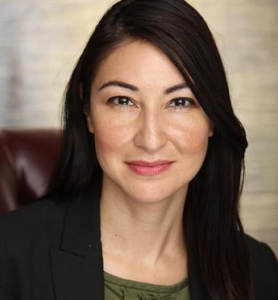
The Orange County juvenile justice system can be very detrimental to a young person. If they are sentenced to a juvenile detention facility, it can put them in the company of other troubled juveniles who are more than happy to teach them the ropes regarding their own criminal lifestyles.
If your child has been arrested, you may wonder what exactly you should do. There are long-term consequences for people with crimes on their background check from when they are a juvenile.
If your child has gotten in trouble with the law, you need a good Orange County juvenile attorney. Learn more about how we can help you below, and give us a call to schedule a case consultation.
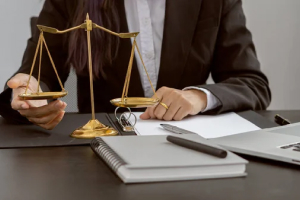
When it comes to legal representation for your child, you can't beat the compassion, care, and client commitment that you get at The Law Offices of Frances Prizzia. At your free initial consultation, we will match you up with our juvenile defense attorney, who will stand by you and work with you every step of the way. Our lawyers have the knowledge, skill, and abilities to fight juvenile court cases.
We want to see you have the best possible outcome for your (or your child's) case, so we will do what we can to facilitate that.
The juvenile criminal justice system is very similar to its adult counterpart. However, the juvenile justice system is specifically for minors younger than 18 years old who have committed a crime in California. When a minor is arrested for a crime, their case goes through the juvenile court system.
While California laws apply to adults and describe illegal behavior, those same laws also apply to juveniles. For instance, just like in adult criminal cases, the burden of proof to establish beyond reasonable doubt that the defendant committed the crime also rests on the prosecution in juvenile cases.
However, unlike in adult criminal cases, the determination of innocence or guilt in juvenile court is solely made by the judge, as there is no jury involved.
Juvenile crimes typically mirror adult crimes. However, some crimes are more commonly seen in juvenile court. For instance, you won't likely see many white-collar cases in juvenile court, although they're quite common in adult criminal court. However, you would probably see plenty of drug-related offenses, property offenses, and juvenile court offenses.
There are many reasons why a young person may get involved in criminal activity. They may run with the "wrong crowd" and succumb to peer pressure. Their family background may be difficult, they may have issues with substance abuse, or their parents may have issues with substance abuse. Finally, mental health issues have the potential to harm young people greatly.
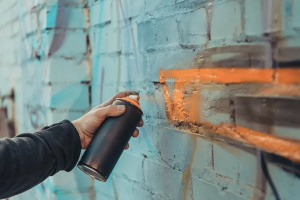
California Penal Code Section 594 legally defines vandalism as maliciously defacing graffiti or another form of written material, damaging or destroying another person's property. Under California law, the offense can be classified as either a misdemeanor or felony, subject to the extent of damage and monetary value involved.
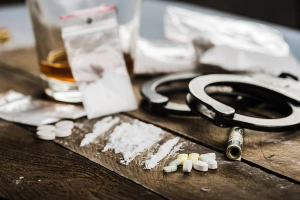
This can include possession charges, prescription drug charges, manufacturing drugs, distributing drugs, and possessing drug paraphernalia. Drug offenses are numerous and common.
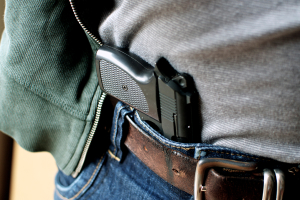
Most of the violent crimes that are tried in juvenile court are also tried in adult Criminal Court. These crimes can include assault, battery, and more.
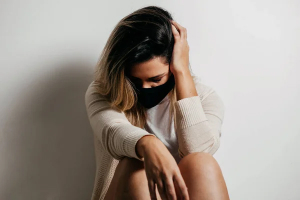
California has very strict laws on sex offenses. These offenses can range anywhere from forcible touching all the way to rape. Minors are just as capable of committing sex offenses as adults.
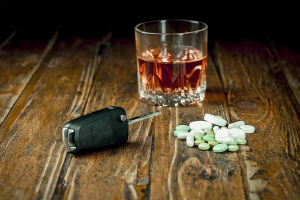
Driving drunk or driving while under the influence of certain substances is a crime. Minors who get stopped and are arrested for DUI often pay a heavier price.
When a person's blood alcohol content is 0.08%, they are considered legally drunk. A driver under the influence can face jail time, fines, mandatory drug rehab programs, and their license could be suspended.
Many factors can contribute to a child engaging in criminal activity. It is not always due to poor parenting. However, often parental influence in a child's life does affect the choices that they make.
Some of the common factors that lead to juvenile crimes include:
While a child who experiences these things is not automatically predisposed to engaging in criminal behavior, these factors certainly increase the risk of it happening.
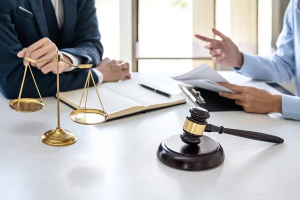
The juvenile court legal process begins at the arrest most of the time. Sometimes an investigation precedes the arrest so that it may begin there. However, when an officer encounters a juvenile breaking the law, they can choose whether to warn the young person and send them home, write the juvenile a citation, or take the juvenile to the detention center.
When a young person is arrested, he is taken to the detention center, where they will begin the juvenile process to deal with their criminal charges. Sometimes the minor will be released and is able to go home, but sometimes the minor remains at the detention center.
Under California law, when a minor is arrested and held in custody, they will have an initial detention hearing that will help them determine if the minor should remain in custody or if they can go home.
An adjudication hearing is much like an arraignment in adult criminal court. The minor appears before the judge, and the judge decides if the minor broke the law, along with other determinations. If the judge decides that the accusations are factual, they will keep the charges and prepare for the trial.
It is up to the judge to determine sentences for juveniles. While adults are sentenced to jail, a minor is sentenced to juvenile hall. In some cases where the crime was very bad, such as murder, the minor will be tried as an adult and placed in jail with other adults.
Penalties for juvenile crimes include time in the juvenile detention center, probation, fines, restitution, community service, drug abuse programs, and more. The penalties are issues depending on the offense.
California has several diversion programs available for various types of juvenile offenses. This could be an opportunity for rehabilitation instead of incarceration, making it easier for individuals and families to obtain a fresh start.
A few options include:
California's Prop 57, passed in 2016, focuses on rehabilitation rather than punishment for juvenile offenders. It gives judges, rather than prosecutors, the authority to decide whether juveniles aged 14 and above should be prosecuted as adults. This legislation aims to provide more opportunities for parole consideration and incentives for inmates to participate in rehabilitation programs.
Prop 57, therefore, reshapes California's criminal justice system, focusing more on reducing recidivism and improving public safety.
OC Young Adult Court in Orange County, California, provides a comprehensive, treatment-focused program specifically designed for young adults aged 18-25. The court emphasizes reducing recidivism through therapeutic and rehabilitative services instead of punitive measures. If applicable, the participants undergo a structured program including therapy, substance abuse treatment, education, vocational training, and community service. Graduates of the program, which typically lasts 12-18 months, receive reduced charges or have their charges dismissed altogether.
You should work with an experienced Orange County juvenile attorney who can review the options and help you decide which path is best for your situation.
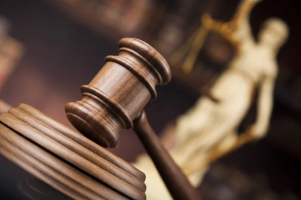
If your child is facing charges, you want to secure the best criminal defense attorney possible. At The Law Offices of Frances Prizzia, we will fight for your child and get the best possible outcome for your case.
Don't wait to see what happens. Don't wait for the dust to settle. Call today, don't wait another minute. From the moment you choose us, we'll spring into action. We will independently investigate the matter, collect evidence on our own behalf, and identify witnesses of the incident.
In the courtroom, we will assertively defend your child and work hard to protect their rights while seeking the best possible outcome of the case. At every step in the process, we will explain it to you so that you clearly understand the process.
Call today to schedule your free consultation and get started in your pursuit of justice.
Juvenile law is very complex. It isn't always as straightforward as the adult criminal process. This often leaves many people with a lot of questions. When you sign with us, we make ourselves available every day, so if you see a problem or have a question, we're right there to give you the answers and ensure that you are comfortable with the situation.
These are some of the most common questions parents and juveniles have had about their cases and the juvenile justice system.
Can a juvenile crime lawyer help expunge a juvenile record?
Some juvenile records are sealed, while others require the defense attorney to request that they are sealed.
In order to get criminal records expunged, the defendant must be 18 years old, or it has been five years since your case was closed. The court must also be satisfied that the person has been rehabilitated.
It is worth noting that expungement makes criminal records not visible to most people. It may still be visible on certain records. For the most part, though, if a prospective employer or landlord pulls a background check, they aren't likely to see the offense.
How long do juvenile records stay on file?
uvenile records do not get destroyed when the defendant turns 18 years old. They do remain as part of your permanent record. This does not mean you can't get your records sealed, expunged, or destroyed. For most convictions, this is possible. Most convictions require that, in order to seek an expungement, either the defendant turns 18 or it has been five years since the incident.
It is a common misconception that juvenile records are immediately wiped away when the defendant turns 18 years old. This simply is not true. It takes some work, but it is doable. Your defense attorney can be an invaluable help in this process.
Can parents be held liable for their child's juvenile offenses?
Parents can be held liable for the juvenile crimes that their child has committed in both criminal and civil courts. They can be held liable for their criminal actions and any property damage or other harm they commit. You could find yourself paying restitution for a crime your child committed.
The best thing to do is talk to a criminal defense lawyer about your liability should your child commit a crime. Your attorney can look at the specifics of your case and advise you as to whether you can be held liable and, if so, what you can do about it.

Call us about your case today at
(714) 362-0157 for a
Free Confidential Consultation.

Client Centered Approach

Reputation by Excellence

Experience

Innovative & Determined

You're Not Just Another Client

AVAILABLE FOR YOU NOW
"*" indicates required fields